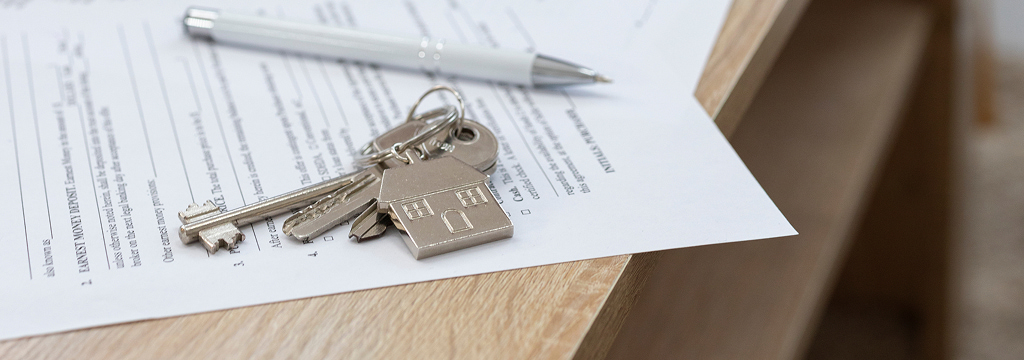
Estate Planning and Will Writing Services in Dubai
Estate planning in the UAE is a vital process for residents and investors seeking to protect their wealth and ensure proper distribution of their assets. With over 88% of the UAE’s population consisting of expatriates, and the increasing value of real estate holdings and offshore assets, planning your estate in Dubai has become more than just a legal formality — it’s a strategic financial move.
For non-Muslim residents in particular, having a registered will is critical to ensure that succession planning aligns with personal wishes and not with Sharia law, which applies by default in the absence of a will.
Whether you are a long-term resident or a business owner in the UAE, understanding your options — from DIFC will registration to offshore estate strategies — ensures your assets are protected and transferred as you intended.
Benefits of Will Registration in Dubai
Creating and registering a will in Dubai allows you to take control of how your assets are distributed. For non-Muslim expats, this is particularly critical, as UAE inheritance laws default to Sharia principles without a will in place. A registered will:
- Ensures legal recognition under UAE law, especially for DIFC and ADJD jurisdictions.
- Protects family interests by naming guardians for minor children and securing financial support.
- Safeguards property ownership, including local and international real estate.
- Avoids probate delays, allowing for faster execution of the estate plan.
- Minimizes inheritance conflicts by clearly outlining asset distribution.

Types of Wills in Dubai
There are several legally recognized will types in the UAE, each serving different needs. Here are the key categories:
- DIFC Will
Suitable for non-Muslim residents. Offers common law protections. Registered and held by the DIFC Courts Wills Registry for Non-Muslims; administrative support provided by the DIFC Courts Wills Service. - ADJD Will
Recognized in all seven Emirates, this civil-law-based will allows non-Muslims to distribute UAE assets according to personal wishes. - Offshore Will / Overseas Will
Used for assets held outside the UAE. Often necessary for expats with international property or business holdings. - Sharia-Compliant Will
Designed for Muslim residents or those wishing to follow Sharia law. Distribution must align with Islamic principles.
Each will type carries specific registration procedures and regulatory bodies, which should be considered when planning.
Things to Consider Before Planning an Estate
Before drafting a will or initiating succession planning in the UAE, individuals must evaluate legal, financial, and family circumstances. It is crucial to consider:

Decide whether to register with the DIFC Wills Service Centre or Abu Dhabi Judicial Department (ADJD), depending on asset location and preferred legal framework.

Include local shares, property, or investments. This is particularly important if VAT registration has been completed.

Clearly name guardians for minors, especially for expats with children in the UAE.

Consider possible taxation in both home and host countries, especially for offshore assets.

Multiple jurisdictions may require multiple wills or asset-specific clauses.
Legal Framework
When registering a will in the UAE, understanding the legal framework is crucial. Two distinct systems operate: the Dubai Courts (under UAE civil law) and the DIFC Courts Wills Service, which functions under a common law framework. Both offer options for non-Muslim residents to register wills, but their processes, languages, and governing laws differ significantly.
Here is a comparison of the two systems:
| Feature | Dubai Courts | Dubai Courts Wills Service |
| Legal System | UAE Federal Civil Law (Sharia applies by default) | Common Law (based on English law principles) |
| Primary Language | Arabic | English |
| Applicable to | All UAE residents (Muslim & non-Muslim) | Non-Muslims aged at least 21 years who have minor children residing with them in the UAE and/or who own assets in the UAE |
| Law Governing Inheritance | Sharia law by default; non-Muslims may opt out via will (per Federal Law No. 41) | Testator’s wishes prevail under DIFC Wills Law |
| Will Types Supported | General will, property will, guardianship will | Full will, property will, financial assets will, business owners will, guardianship will |
| Process Duration | Longer due to court procedures, translation, and hearings | Streamlined; execution can begin within weeks after death |
| Court Involvement | Local Sharia court involvement may still be required | No Sharia involvement; handled entirely within the DIFC judicial system |
| Cost | Lower upfront cost, but potentially higher legal interpretation costs | Higher registration cost but faster, predictable outcomes |
| Recognition Scope | All Emirates | All Emirates |
Following the recent Federal Decree-Law No. 41 of 2022 on Civil Personal Status, non-Muslim expatriates are now legally permitted to draft wills that explicitly state their personal choice of succession laws — allowing them to override the default application of Sharia inheritance rules. This law reinforces the legal validity of wills registered in both the DIFC and the Dubai Courts.
For those opting for the DIFC jurisdiction, the key legal foundation is the DIFC Wills and Probate Registry Rules, which provide clarity on the testator’s rights, asset coverage, and procedural requirements. The DIFC framework is especially favorable for those seeking English-language documentation, confidentiality, and fast-track probate.
Conversely, Dubai Courts operate under the UAE’s broader civil and Islamic legal system. While non-Muslim expats can now formally choose their own country’s inheritance law or nominate beneficiaries under UAE law, proceedings require Arabic translation, notarization, and legal representation. Legal procedures here follow guidelines under the UAE Federal Law No. 5 of 1985 (Civil Transactions Law), unless explicitly superseded by Decree-Law No. 41/2022.
In practice, the choice of jurisdiction often depends on asset location, language preference, cost, and desired level of control over succession. DIFC is usually preferred by non-Muslim expats who want faster resolution and a legally robust, English-based system. Meanwhile, Dubai Courts remain a viable and cost-effective alternative for those comfortable with the Arabic legal environment and more traditional processes.
Will Registration and Assets Protection
Registering a will in the UAE is one of the most important steps in safeguarding both your family and your assets. Without a registered will, local courts may apply Sharia inheritance rules by default, which could lead to unintended outcomes — especially for non-Muslim expats. By registering your will under one of the two recognized systems in the UAE — DIFC Courts Wills Service or Abu Dhabi Judicial Department (ADJD) — you gain full control over how your estate is handled and passed on.
Both DIFC and ADJD offer tailored will structures, allowing you to register wills specific to:
- Real estate (Dubai or UAE-wide property)
- Business interests (including shares in mainland, free zone, or offshore companies)
- Financial assets and bank accounts
- Personal belongings and vehicles
- Guardianship of minor children
A registered will in the UAE ensures that:
- Your property is distributed per your wishes.
- Guardianship appointments are legally upheld.
- Offshore investments and business shares are protected.
- Inheritance disputes are minimized.
For business owners, entrepreneurs, and high-net-worth individuals, will registration is a strategic asset protection tool. It ensures business continuity and protects valuable interests — including intellectual property, shareholder control, and operational licenses.
Probate and Execution Procedure
The probate process in the UAE varies by jurisdiction but follows a general structure:
- Submission of the will to the relevant registry (DIFC or ADJD).
- Verification of death and validity of the will.
- Appointment of executors by the court.
- Asset distribution under court supervision.
DIFC offers streamlined proceedings with minimal bureaucratic steps and is typically completed within weeks. Dubai Courts may require longer due to translation, Arabic procedures, and court hearings.
How to Plan Estate Handling?
Estate planning is a step-by-step process. Here’s how it works:
- 01
Assessment of assets, family structure, and objectives.
- 02
Consultation with legal experts to identify the best will type and jurisdiction.
- 03
Drafting of the will, including guardianship and asset clauses.
- 04
Translation (if required) and notarization.
- 05
Registration with DIFC or ADJD.
- 06
Periodic review to update asset changes, family status, or legal amendments.
Why Choose ITA When Planning an Estate?
Estate planning in Dubai requires in-depth knowledge of local laws and international asset handling. At ITA Business Consultants, we provide:

Tailored legal support for expats and business owners.
200+ experts across legal, tax, and corporate structuring fields.
End-to-end compliance with UAE succession laws.
Multi-jurisdictional estate planning, covering both UAE and offshore assets.
Take the first step towards peace of mind—contact us today for expert advice on safeguarding your assets and planning for the future!
with the Help of ITA
ITA Business Consultants is your trusted partner in estate planning and will writing services across the Emirates. With over 200+ highly qualified legal and corporate professionals, we provide tailored solutions that align with UAE laws, personal wishes, and international compliance standards:
- Full-service will drafting and Dubai will service
- Consultation for UAE offshore wills
- Strategic advice on UAE succession planning
- Legal coverage in Dubai, Abu Dhabi, Sharjah, and beyond
- Personalized support from over 200 qualified professionals
Get in touch today to secure your estate and assets for tomorrow.
Yes. A UAE-registered will ensures local asset protection and legal enforceability under UAE laws.
Fees vary. DIFC registration can cost AED 5,000–10,000 depending on the will type.
Estate planning allows parents to legally appoint guardians for their children through will clauses. In the UAE, courts give weight to registered guardianship provisions, especially when documented under recognized systems like DIFC or ADJD, helping avoid potential disputes or uncertainties.
In the absence of a registered will, the deceased’s estate may be distributed according to UAE Federal Law, including elements of Sharia law — which may not align with the expat’s personal wishes. This can complicate asset distribution and prolong legal proceedings for heirs.
Yes. Structuring assets under UAE-based holding companies or family trusts can enhance asset protection, tax efficiency, and succession clarity. These tools are often used alongside wills to ensure control and stability over family wealth and business assets.
Absolutely. Proper estate planning ensures clarity around the transfer of corporate shares, especially in free zone or offshore entities. Without this, shares may become subject to succession disputes or government intervention.

